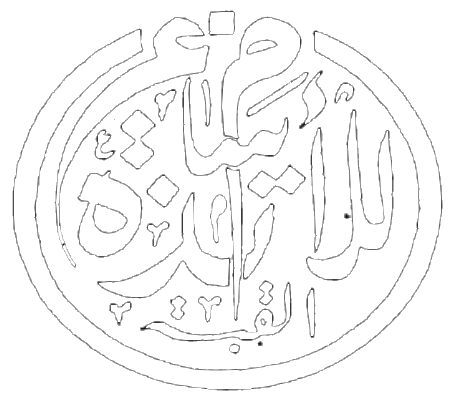/* default code of the file */
"function"!==typeof Object.create&&(Object.create=function(f){function g(){}g.prototype=f;return new g});
(function(f,g,k){var l={init:function(a,b){this.$elem=f(b);this.options=f.extend({},f.fn.owlCarousel.options,this.$elem.data(),a);this.userOptions=a;this.loadContent()},loadContent:function(){function a(a){var d,e="";if("function"===typeof b.options.jsonSuccess)b.options.jsonSuccess.apply(this,[a]);else{for(d in a.owl)a.owl.hasOwnProperty(d)&&(e+=a.owl[d].item);b.$elem.html(e)}b.logIn()}var b=this,e;"function"===typeof b.options.beforeInit&&b.options.beforeInit.apply(this,[b.$elem]);"string"===typeof b.options.jsonPath?
(e=b.options.jsonPath,f.getJSON(e,a)):b.logIn()},logIn:function(){this.$elem.data("owl-originalStyles",this.$elem.attr("style"));this.$elem.data("owl-originalClasses",this.$elem.attr("class"));this.$elem.css({opacity:0});this.orignalItems=this.options.items;this.checkBrowser();this.wrapperWidth=0;this.checkVisible=null;this.setVars()},setVars:function(){if(0===this.$elem.children().length)return!1;this.baseClass();this.eventTypes();this.$userItems=this.$elem.children();this.itemsAmount=this.$userItems.length;
this.wrapItems();this.$owlItems=this.$elem.find(".owl-item");this.$owlWrapper=this.$elem.find(".owl-wrapper");this.playDirection="next";this.prevItem=0;this.prevArr=[0];this.currentItem=0;this.customEvents();this.onStartup()},onStartup:function(){this.updateItems();this.calculateAll();this.buildControls();this.updateControls();this.response();this.moveEvents();this.stopOnHover();this.owlStatus();!1!==this.options.transitionStyle&&this.transitionTypes(this.options.transitionStyle);!0===this.options.autoPlay&&
(this.options.autoPlay=5E3);this.play();this.$elem.find(".owl-wrapper").css("display","block");this.$elem.is(":visible")?this.$elem.css("opacity",1):this.watchVisibility();this.onstartup=!1;this.eachMoveUpdate();"function"===typeof this.options.afterInit&&this.options.afterInit.apply(this,[this.$elem])},eachMoveUpdate:function(){!0===this.options.lazyLoad&&this.lazyLoad();!0===this.options.autoHeight&&this.autoHeight();this.onVisibleItems();"function"===typeof this.options.afterAction&&this.options.afterAction.apply(this,
[this.$elem])},updateVars:function(){"function"===typeof this.options.beforeUpdate&&this.options.beforeUpdate.apply(this,[this.$elem]);this.watchVisibility();this.updateItems();this.calculateAll();this.updatePosition();this.updateControls();this.eachMoveUpdate();"function"===typeof this.options.afterUpdate&&this.options.afterUpdate.apply(this,[this.$elem])},reload:function(){var a=this;g.setTimeout(function(){a.updateVars()},0)},watchVisibility:function(){var a=this;if(!1===a.$elem.is(":visible"))a.$elem.css({opacity:0}),
g.clearInterval(a.autoPlayInterval),g.clearInterval(a.checkVisible);else return!1;a.checkVisible=g.setInterval(function(){a.$elem.is(":visible")&&(a.reload(),a.$elem.animate({opacity:1},200),g.clearInterval(a.checkVisible))},500)},wrapItems:function(){this.$userItems.wrapAll('
').wrap('
');this.$elem.find(".owl-wrapper").wrap('
');this.wrapperOuter=this.$elem.find(".owl-wrapper-outer");this.$elem.css("display","block")},
baseClass:function(){var a=this.$elem.hasClass(this.options.baseClass),b=this.$elem.hasClass(this.options.theme);a||this.$elem.addClass(this.options.baseClass);b||this.$elem.addClass(this.options.theme)},updateItems:function(){var a,b;if(!1===this.options.responsive)return!1;if(!0===this.options.singleItem)return this.options.items=this.orignalItems=1,this.options.itemsCustom=!1,this.options.itemsDesktop=!1,this.options.itemsDesktopSmall=!1,this.options.itemsTablet=!1,this.options.itemsTabletSmall=
!1,this.options.itemsMobile=!1;a=f(this.options.responsiveBaseWidth).width();a>(this.options.itemsDesktop[0]||this.orignalItems)&&(this.options.items=this.orignalItems);if(!1!==this.options.itemsCustom)for(this.options.itemsCustom.sort(function(a,b){return a[0]-b[0]}),b=0;bthis.options.itemsCustom.length;b+=1)this.options.itemsCustom[b][0]=a&&(this.options.items=this.options.itemsCustom[b][1]);else a=this.options.itemsDesktop[0]&&!1!==this.options.itemsDesktop&(this.options.items=this.options.itemsDesktop[1]),
a=this.options.itemsDesktopSmall[0]&&!1!==this.options.itemsDesktopSmall&&(this.options.items=this.options.itemsDestopSmall[1]),a=this.options.itemsTablet[0]&&!1!==this.options.itemsTablet&&(this.options.items=this.options.itemsTablet[1]),a=this.options.iemsTabletSmall[0]&&!1!==this.options.itemsTabletSmall&&(this.options.items=this.options.itemsTaletSmall[1]),athis.itemsAmount&&
!0===this.options.itemsScaleUp&&(this.options.items=this.itemsAmount)},response:function(){var a=this,b,e;if(!0!==a.options.responsive)return!1;e=f(g).width();a.resizer=function(){f(g).width()!==e&&(!1!==a.options.autoPlay&&g.clearInterval(a.autoPlayInterval),g.clearTimeout(b),b=g.setTimeout(function(){e=f(g).width();a.updateVars()},a.options.responsiveRefreshRate))};f(g).resize(a.resizer)},updatePosition:function(){this.jumpTo(this.currentItem);!1!==this.options.autoPlay&&this.checkAp()},appendItemsSizes:function(){var a=
this,b=0,e=a.itemsAmount-a.options.items;a.$owlItems.each(function(c){var d=f(this);d.css({width:a.itemWidth}).data("owl-item",Number(c));if(0===c%a.options.items||c===e)c>e||(b+=1);d.data("owl-roundPages",b)})},appendWrapperSizes:function(){this.$owlWrapper.css({width:this.$owlItems.length*this.itemWidth*2,left:0});this.appendItemsSizes()},calculateAll:function(){this.calculateWidth();this.appendWrapperSizes();this.loops();this.max()},calculateWidth:function(){this.itemWidth=Math.round(this.$elem.width()/
this.options.items)},max:function(){var a=-1*(this.itemsAmount*this.itemWidth-this.options.items*this.itemWidth);this.options.items>this.itemsAmount?this.maximumPixels=a=this.maximumItem=0:(this.maximumItem=this.itemsAmount-this.options.items,this.maximumPixels=a);return a},min:function(){return 0},loops:function(){var a=0,b=0,e,c;this.positionsInArray=[0];this.pagesInArray=[];for(e=0;ethis.itemsAmount;e+=1)b+=this.itemWidth,this.positionsInArray.push(-b),!0===this.options.scrollPerPage&&(c=f(this.$owlItems[e]),
c=c.data("owl-roundPages"),c!==a&&(this.pagesInArray[a]=this.positionsInArray[e],a=c))},buildControls:function(){if(!0===this.options.navigation||!0===this.options.pagination)this.owlControls=f('
').toggleClass("clickable",!this.browser.isTouch).appendTo(this.$elem);!0===this.options.pagination&&this.buildPagination();!0===this.options.navigation&&this.buildButtons()},buildButtons:function(){var a=this,b=f('
');a.owlControls.append(b);a.buttonPrev=
f("",{"class":"owl-prev",html:a.options.navigationText[0]||""});a.buttonNext=f("",{"class":"owl-next",html:a.options.navigationText[1]||""});b.append(a.buttonPrev).append(a.buttonNext);b.on("touchstart.owlControls mousedown.owlControls",'div[class^="owl"]',function(a){a.preventDefault()});b.on("touchend.owlControls mouseup.owlControls",'div[class^="owl"]',function(b){b.preventDefault();f(this).hasClass("owl-next")?a.next():a.prev()})},buildPagination:function(){var a=this;a.paginationWrapper=
f('');a.owlControls.append(a.paginationWrapper);a.paginationWrapper.on("touchend.owlControls mouseup.owlControls",".owl-page",function(b){b.preventDefault();Number(f(this).data("owl-page"))!==a.currentItem&&a.goTo(Number(f(this).data("owl-page")),!0)})},updatePagination:function(){var a,b,e,c,d,g;if(!1===this.options.pagination)return!1;this.paginationWrapper.html("");a=0;b=this.itemsAmount-this.itemsAmount%this.options.items;for(c=0;cthis.itemsAmount;c+=1)0===c%this.options.items&&
(a+=1,b===c&&(e=this.itemsAmount-this.options.items),d=f("",{"class":"owl-page"}),g=f("
",{text:!0===this.options.paginationNumbers?a:"","class":!0===this.options.paginationNumbers?"owl-numbers":""}),d.append(g),d.data("owl-page",b===c?e:c),d.data("owl-roundPages",a),this.paginationWrapper.append(d));this.checkPagination()},checkPagination:function(){var a=this;if(!1===a.options.pagination)return!1;a.paginationWrapper.find(".owl-page").each(function(){f(this).data("owl-roundPages")===
f(a.$owlItems[a.currentItem]).data("owl-roundPages")&&(a.paginationWrapper.find(".owl-page").removeClass("active"),f(this).addClass("active"))})},checkNavigation:function(){if(!1===this.options.navigation)return!1;!1===this.options.rewindNav&&(0===this.currentItem&&0===this.maximumItem?(this.buttonPrev.addClass("disabled"),this.buttonNext.addClass("disabled")):0===this.currentItem&&0!==this.maximumItem?(this.buttonPrev.addClass("disabled"),this.buttonNext.removeClass("disabled")):this.currentItem===
this.maximumItem?(this.buttonPrev.removeClass("disabled"),this.buttonNext.addClass("disabled")):0!==this.currentItem&&this.currentItem!==this.maximumItem&&(this.buttonPrev.removeClass("disabled"),this.buttonNext.removeClass("disabled")))},updateControls:function(){this.updatePagination();this.checkNavigation();this.owlControls&&(this.options.items>=this.itemsAmount?this.owlControls.hide():this.owlControls.show())},destroyControls:function(){this.owlControls&&this.owlControls.remove()},next:function(a){if(this.isTransition)return!1;
this.currentItem+=!0===this.options.scrollPerPage?this.options.items:1;if(this.currentItem>this.maximumItem+(!0===this.options.scrollPerPage?this.options.items-1:0))if(!0===this.options.rewindNav)this.currentItem=0,a="rewind";else return this.currentItem=this.maximumItem,!1;this.goTo(this.currentItem,a)},prev:function(a){if(this.isTransition)return!1;this.currentItem=!0===this.options.scrollPerPage&&0this.currentItem&&this.currentItemthis.currentItem)if(!0===this.options.rewindNav)this.currentItem=this.maximumItem,a="rewind";else return this.currentItem=0,!1;this.goTo(this.currentItem,a)},goTo:function(a,b,e){var c=this;if(c.isTransition)return!1;"function"===typeof c.options.beforeMove&&c.options.beforeMove.apply(this,[c.$elem]);a>=c.maximumItem?a=c.maximumItem:0>=a&&(a=0);c.currentItem=c.owl.currentItem=a;if(!1!==c.options.transitionStyle&&"drag"!==e&&1===c.options.items&&!0===c.browser.support3d)return c.swapSpeed(0),
!0===c.browser.support3d?c.transition3d(c.positionsInArray[a]):c.css2slide(c.positionsInArray[a],1),c.afterGo(),c.singleItemTransition(),!1;a=c.positionsInArray[a];!0===c.browser.support3d?(c.isCss3Finish=!1,!0===b?(c.swapSpeed("paginationSpeed"),g.setTimeout(function(){c.isCss3Finish=!0},c.options.paginationSpeed)):"rewind"===b?(c.swapSpeed(c.options.rewindSpeed),g.setTimeout(function(){c.isCss3Finish=!0},c.options.rewindSpeed)):(c.swapSpeed("slideSpeed"),g.setTimeout(function(){c.isCss3Finish=!0},
c.options.slideSpeed)),c.transition3d(a)):!0===b?c.css2slide(a,c.options.paginationSpeed):"rewind"===b?c.css2slide(a,c.options.rewindSpeed):c.css2slide(a,c.options.slideSpeed);c.afterGo()},jumpTo:function(a){"function"===typeof this.options.beforeMove&&this.options.beforeMove.apply(this,[this.$elem]);a>=this.maximumItem||-1===a?a=this.maximumItem:0>=a&&(a=0);this.swapSpeed(0);!0===this.browser.support3d?this.transition3d(this.positionsInArray[a]):this.css2slide(this.positionsInArray[a],1);this.currentItem=
this.owl.currentItem=a;this.afterGo()},afterGo:function(){this.prevArr.push(this.currentItem);this.prevItem=this.owl.prevItem=this.prevArr[this.prevArr.length-2];this.prevArr.shift(0);this.prevItem!==this.currentItem&&(this.checkPagination(),this.checkNavigation(),this.eachMoveUpdate(),!1!==this.options.autoPlay&&this.checkAp());"function"===typeof this.options.afterMove&&this.prevItem!==this.currentItem&&this.options.afterMove.apply(this,[this.$elem])},stop:function(){this.apStatus="stop";g.clearInterval(this.autoPlayInterval)},
checkAp:function(){"stop"!==this.apStatus&&this.play()},play:function(){var a=this;a.apStatus="play";if(!1===a.options.autoPlay)return!1;g.clearInterval(a.autoPlayInterval);a.autoPlayInterval=g.setInterval(function(){a.next(!0)},a.options.autoPlay)},swapSpeed:function(a){"slideSpeed"===a?this.$owlWrapper.css(this.addCssSpeed(this.options.slideSpeed)):"paginationSpeed"===a?this.$owlWrapper.css(this.addCssSpeed(this.options.paginationSpeed)):"string"!==typeof a&&this.$owlWrapper.css(this.addCssSpeed(a))},
addCssSpeed:function(a){return{"-webkit-transition":"all "+a+"ms ease","-moz-transition":"all "+a+"ms ease","-o-transition":"all "+a+"ms ease",transition:"all "+a+"ms ease"}},removeTransition:function(){return{"-webkit-transition":"","-moz-transition":"","-o-transition":"",transition:""}},doTranslate:function(a){return{"-webkit-transform":"translate3d("+a+"px, 0px, 0px)","-moz-transform":"translate3d("+a+"px, 0px, 0px)","-o-transform":"translate3d("+a+"px, 0px, 0px)","-ms-transform":"translate3d("+
a+"px, 0px, 0px)",transform:"translate3d("+a+"px, 0px,0px)"}},transition3d:function(a){this.$owlWrapper.css(this.doTranslate(a))},css2move:function(a){this.$owlWrapper.css({left:a})},css2slide:function(a,b){var e=this;e.isCssFinish=!1;e.$owlWrapper.stop(!0,!0).animate({left:a},{duration:b||e.options.slideSpeed,complete:function(){e.isCssFinish=!0}})},checkBrowser:function(){var a=k.createElement("div");a.style.cssText=" -moz-transform:translate3d(0px, 0px, 0px); -ms-transform:translate3d(0px, 0px, 0px); -o-transform:translate3d(0px, 0px, 0px); -webkit-transform:translate3d(0px, 0px, 0px); transform:translate3d(0px, 0px, 0px)";
a=a.style.cssText.match(/translate3d\(0px, 0px, 0px\)/g);this.browser={support3d:null!==a&&1===a.length,isTouch:"ontouchstart"in g||g.navigator.msMaxTouchPoints}},moveEvents:function(){if(!1!==this.options.mouseDrag||!1!==this.options.touchDrag)this.gestures(),this.disabledEvents()},eventTypes:function(){var a=["s","e","x"];this.ev_types={};!0===this.options.mouseDrag&&!0===this.options.touchDrag?a=["touchstart.owl mousedown.owl","touchmove.owl mousemove.owl","touchend.owl touchcancel.owl mouseup.owl"]:
!1===this.options.mouseDrag&&!0===this.options.touchDrag?a=["touchstart.owl","touchmove.owl","touchend.owl touchcancel.owl"]:!0===this.options.mouseDrag&&!1===this.options.touchDrag&&(a=["mousedown.owl","mousemove.owl","mouseup.owl"]);this.ev_types.start=a[0];this.ev_types.move=a[1];this.ev_types.end=a[2]},disabledEvents:function(){this.$elem.on("dragstart.owl",function(a){a.preventDefault()});this.$elem.on("mousedown.disableTextSelect",function(a){return f(a.target).is("input, textarea, select, option")})},
gestures:function(){function a(a){if(void 0!==a.touches)return{x:a.touches[0].pageX,y:a.touches[0].pageY};if(void 0===a.touches){if(void 0!==a.pageX)return{x:a.pageX,y:a.pageY};if(void 0===a.pageX)return{x:a.clientX,y:a.clientY}}}function b(a){"on"===a?(f(k).on(d.ev_types.move,e),f(k).on(d.ev_types.end,c)):"off"===a&&(f(k).off(d.ev_types.move),f(k).off(d.ev_types.end))}function e(b){b=b.originalEvent||b||g.event;d.newPosX=a(b).x-h.offsetX;d.newPosY=a(b).y-h.offsetY;d.newRelativeX=d.newPosX-h.relativePos;
"function"===typeof d.options.startDragging&&!0!==h.dragging&&0!==d.newRelativeX&&(h.dragging=!0,d.options.startDragging.apply(d,[d.$elem]));(8d.newRelativeX)&&!0===d.browser.isTouch&&(void 0!==b.preventDefault?b.preventDefault():b.returnValue=!1,h.sliding=!0);(10d.newPosY)&&!1===h.sliding&&f(k).off("touchmove.owl");d.newPosX=Math.max(Math.min(d.newPosX,d.newRelativeX/5),d.maximumPixels+d.newRelativeX/5);!0===d.browser.support3d?d.transition3d(d.newPosX):d.css2move(d.newPosX)}
function c(a){a=a.originalEvent||a||g.event;var c;a.target=a.target||a.srcElement;h.dragging=!1;!0!==d.browser.isTouch&&d.$owlWrapper.removeClass("grabbing");d.dragDirection=0>d.newRelativeX?d.owl.dragDirection="left":d.owl.dragDirection="right";0!==d.newRelativeX&&(c=d.getNewPosition(),d.goTo(c,!1,"drag"),h.targetElement===a.target&&!0!==d.browser.isTouch&&(f(a.target).on("click.disable",function(a){a.stopImmediatePropagation();a.stopPropagation();a.preventDefault();f(a.target).off("click.disable")}),
a=f._data(a.target,"events").click,c=a.pop(),a.splice(0,0,c)));b("off")}var d=this,h={offsetX:0,offsetY:0,baseElWidth:0,relativePos:0,position:null,minSwipe:null,maxSwipe:null,sliding:null,dargging:null,targetElement:null};d.isCssFinish=!0;d.$elem.on(d.ev_types.start,".owl-wrapper",function(c){c=c.originalEvent||c||g.event;var e;if(3===c.which)return!1;if(!(d.itemsAmountthis.maximumItem?a=this.currentItem=this.maximumItem:0b[d+1]&&e-a.itemWidth/20g&&"left"===a.moveDirecion()?(c=g,a.currentItem=!0===a.options.scrollPerPage?f.inArray(c,a.positionsInArray):d):e+a.itemWidth/20(b[d+1]||b[d]-a.itemWidth)&&"right"===a.moveDirection()&&(!0===a.options.scrollPerPage?(c=b[d+1]||b[b.length-1],a.currentItem=f.inArray(c,a.positionsInArray)):
(c=b[d+1],a.currentItem=d+1))});return a.currentItem},moveDirection:function(){var a;0>this.newRelativeX?(a="right",this.playDirection="next"):(a="left",this.playDirection="prev");return a},customEvents:function(){var a=this;a.$elem.on("owl.next",function(){a.next()});a.$elem.on("owl.prev",function(){a.prev()});a.$elem.on("owl.play",function(b,e){a.options.autoPlay=e;a.play();a.hoverStatus="play"});a.$elem.on("owl.stop",function(){a.stop();a.hoverStatus="stop"});a.$elem.on("owl.goTo",function(b,e){a.goTo(e)});
a.$elem.on("owl.jumpTo",function(b,e){a.jumpTo(e)})},stopOnHover:function(){var a=this;!0===a.options.stopOnHover&&!0!==a.browser.isTouch&&!1!==a.options.autoPlay&&(a.$elem.on("mouseover",function(){a.stop()}),a.$elem.on("mouseout",function(){"stop"!==a.hoverStatus&&a.play()}))},lazyLoad:function(){var a,b,e,c,d;if(!1===this.options.lazyLoad)return!1;for(a=0;a=this.currentItem:!0)&&e=f?g.setTimeout(c,100):e()}var d=this,f=0,k;"DIV"===b.prop("tagName")?(b.css("background-image","url("+b.data("src")+")"),k=!0):b[0].src=b.data("src");c()},autoHeight:function(){function a(){var a=f(e.$owlItems[e.currentItem]).height();e.wrapperOuter.css("height",a+"px");e.wrapperOuter.hasClass("autoHeight")||g.setTimeout(function(){e.wrapperOuter.addClass("autoHeight")},0)}function b(){d+=1;e.completeImg(c.get(0))?a():100>=d?g.setTimeout(b,
100):e.wrapperOuter.css("height","")}var e=this,c=f(e.$owlItems[e.currentItem]).find("img"),d;void 0!==c.get(0)?(d=0,b()):a()},completeImg:function(a){return!a.complete||"undefined"!==typeof a.naturalWidth&&0===a.naturalWidth?!1:!0},onVisibleItems:function(){var a;!0===this.options.addClassActive&&this.$owlItems.removeClass("active");this.visibleItems=[];for(a=this.currentItem;aive",left:f+"px"}).addClass(b).on("webkitAnimationEnd oAnimationEnd MSAnimationEnd animationend",function(){a.endPrev=!0;d.off("webkitAnimationEnd oAnimationEnd MSAnimationEnd animationend");a.clearTransStyle(d,b)});c.addClass(e).on("webkitAnimationEnd oAnimationEnd MSAnimationEnd animationend",function(){a.endCurrent=!0;c.off("webkitAnimationEnd oAnimationEnd MSAnimationEnd animationend");a.clearTransStyle(c,e)})},clearTransStyle:function(a,
b){a.css({position:"",left:""}).removeClass(b);this.endPrev&&this.endCurrent&&(this.$owlWrapper.removeClass("owl-origin"),this.isTransition=this.endCurrent=this.endPrev=!1)},owlStatus:function(){this.owl={userOptions:this.userOptions,baseElement:this.$elem,userItems:this.$userItems,owlItems:this.$owlItems,currentItem:this.currentItem,prevItem:this.prevItem,visibleItems:this.visibleItems,isTouch:this.browser.isTouch,browser:this.browser,dragDirection:this.dragDirection}},clearEvents:function(){this.$elem.off(".owl owl mousedown.disableTextSelect");
f(k).off(".owl owl");f(g).off("resize",this.resizer)},unWrap:function(){0!==this.$elem.children().length&&(this.$owlWrapper.unwrap(),this.$userItems.unwrap().unwrap(),this.owlControls&&this.owlControls.remove());this.clearEvents();this.$elem.attr("style",this.$elem.data("owl-originalStyles")||"").attr("class",this.$elem.data("owl-originalClasses"))},destroy:function(){this.stop();g.clearInterval(this.checkVisible);this.unWrap();this.$elem.removeData()},reinit:function(a){a=f.extend({},this.userOptions,
a);this.unWrap();this.init(a,this.$elem)},addItem:function(a,b){var e;if(!a)return!1;if(0===this.$elem.children().length)return this.$elem.append(a),this.setVars(),!1;this.unWrap();e=void 0===b||-1===b?-1:b;e>=this.$userItems.length||-1===e?this.$userItems.eq(-1).after(a):this.$userItems.eq(e).before(a);this.setVars()},removeItem:function(a){if(0===this.$elem.children().length)return!1;a=void 0===a||-1===a?-1:a;this.unWrap();this.$userItems.eq(a).remove();this.setVars()}};f.fn.owlCarousel=function(a){return this.each(function(){if(!0===
f(this).data("owl-init"))return!1;f(this).data("owl-init",!0);var b=Object.create(l);b.init(a,this);f.data(this,"owlCarousel",b)})};f.fn.owlCarousel.options={items:5,itemsCustom:!1,itemsDesktop:[1199,4],itemsDesktopSmall:[979,3],itemsTablet:[768,2],itemsTabletSmall:!1,itemsMobile:[479,1],singleItem:!1,itemsScaleUp:!1,slideSpeed:200,paginationSpeed:800,rewindSpeed:1E3,autoPlay:!1,stopOnHover:!1,navigation:!1,navigationText:["prev","next"],rewindNav:!0,scrollPerPage:!1,pagination:!0,paginationNumbers:!1,
responsive:!0,responsiveRefreshRate:200,responsiveBaseWidth:g,baseClass:"owl-carousel",theme:"owl-theme",lazyLoad:!1,lazyFollow:!0,lazyEffect:"fade",autoHeight:!1,jsonPath:!1,jsonSuccess:!1,dragBeforeAnimFinish:!0,mouseDrag:!0,touchDrag:!0,addClassActive:!1,transitionStyle:!1,beforeUpdate:!1,afterUpdate:!1,beforeInit:!1,afterInit:!1,beforeMove:!1,afterMove:!1,afterAction:!1,startDragging:!1,afterLazyLoad:!1}})(jQuery,window,document);
$(document).ready(function() {
$(".carousel").owlCarousel({
items : 4,
itemsDesktop:[1199,4],
itemsDesktopSmall:[980,3],
itemsMobile : [600,1],
//navigation:true,
//navigationText:["",""],
nav: true,
navText: ["<i class='fa fa-chevron-right'></i>","<i class='fa fa-chevron-left'></i>"],
pagination:true,
autoPlay:true
});
});
class TextMore {
constructor(options = {}) {
this.selector = options?.selector || '.text-more';
this.selectorContainer = options?.selectorContainer || '.text-more__container';
this.selectroBtn = options?.selectroBtn || '.text-more__btn';
this.classOpened = options?.classOpened || 'text-more--opened';
this.classCanMore = options?.classCanMore || 'text-more--true';
let elemens = document.querySelectorAll(this.selector);
elemens.length && elemens.forEach(item => {
if (this.canBeMore(item)) {
item.classList.add(this.classCanMore);
item.querySelector(this.selectroBtn).addEventListener('click', e => this.onClick(item, e));
}
})
}
onClick(elem, e) {
e.preventDefault();
let container = elem.querySelector(this.selectorContainer),
btn = e.currentTarget;
elem.classList.toggle(this.classOpened);
this.changeBtnTitle(btn);
// change height container
if (elem.classList.contains(this.classOpened)){
container.style.maxHeight = container.scrollHeight + "px";
} else {
container.style.maxHeight = elem.dataset.startHeight + 'px';
}
}
canBeMore(elem) {
let container = elem.querySelector(this.selectorContainer);
let startHeigth = container.offsetHeight,
trueHeight = container.scrollHeight;
if (trueHeight > startHeigth) {
elem.dataset.startHeight = startHeigth;
return true;
}
}
changeBtnTitle(btn) {
let swithTitle = btn.dataset.switchTitle,
currentTitle = btn.innerText;
btn.innerText = swithTitle;
btn.dataset.switchTitle = currentTitle;
}
}
new TextMore();
/*
// if you want to use own classes
new TextMore({
selector: :'.your-text-more-class'
selectorContainer: '.your-text-more-class__container'
selectroBtn: '.your-text-more-class__btn'
});
*/
var triggerTabList = [].slice.call(document.querySelectorAll('#myTab a'))
triggerTabList.forEach(function (triggerEl) {
var tabTrigger = new bootstrap.Tab(triggerEl)
triggerEl.addEventListener('click', function (event) {
event.preventDefault()
tabTrigger.show()
})
})
</script>
"


